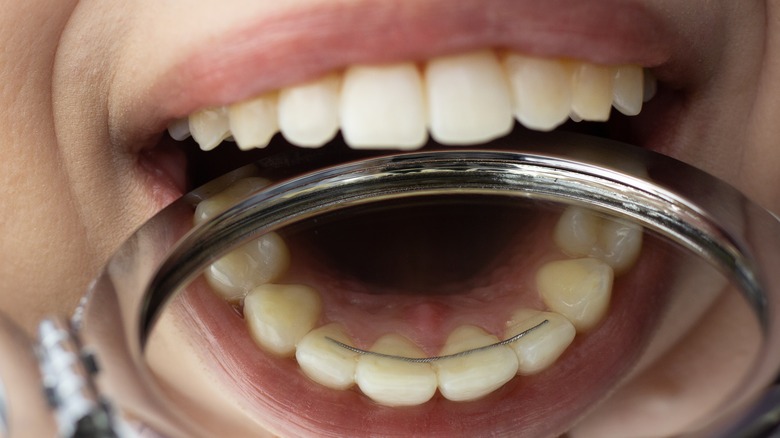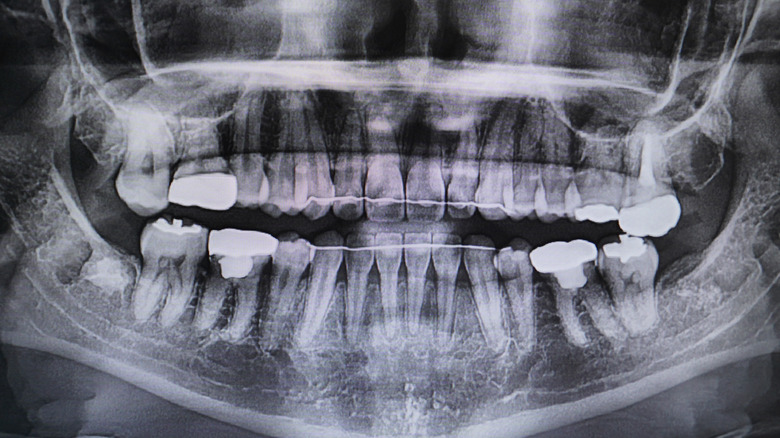What You Need To Know About Permanent Retainers
After months or years of having braces, orthodontists give patients 2 options for retainers: permanent or removable. According to Healthline, permanent, or fixed, retainers are made of metal wires and come in different textures, such as smooth or braided. These permanent retainers are then glued onto the teeth with a special bonding agent. While ultimately it's up to the patient, orthodontists recommend permanent retainers to ensure teeth stay aligned. Typically, people who may not be able to keep up with removable retainers may work better with permanent retainers. However, some orthodontists prefer to use a combination of removable or permanent retainers. For example, an orthodontist may recommend permanent retainers for your lower teeth, and a removable retainer for your upper set of teeth.
How long a permanent retainer lasts varies by patient, but according to Stroops Orthodontics Arkansas, permanent retainers can last for up to 2 decades. Despite being "permanent," however, permanent retainers can become damaged and may need to be replaced over time. While this is possible, permanent retainers are still more durable than removable retainers.
Pros and cons of permanent retainers
Permanent retainers are not for everyone, and like most things, they have their pros and cons. One of the biggest pros of permanent retainers is that you'll never forget to wear them. Orthodontic Experts reports that when retainers are permanently fixed onto the teeth, you have less to worry about, such as keeping them clean outside of your typical oral hygiene routine. Another benefit of opting for a permanent retainer is they're put behind the teeth, so they're invisible. Plus, the wire on permanent retainers is thinner than wires on removable retainers, making for a more comfortable fit.
Regular brushing and flossing are already important, but when you have permanent retainers, oral hygiene is vital. According to Thurman Orthodontics, because the wire is glued to the teeth, you may have to spend extra time flossing to ensure you're getting everything in between. Without proper care, there is the possibility of plaque building up around the retainers.
Permanent retainers may break more easily when in contact with crunchy or hard foods (via Thurman Orthodontics). Another drawback of them is that when the retainers are fixed, they don't cover all of your teeth. Orthodontic Specialists of White Plains reports permanent that retainers are only bonded to the front teeth — not the back — so you risk relapsing improper alignment.


